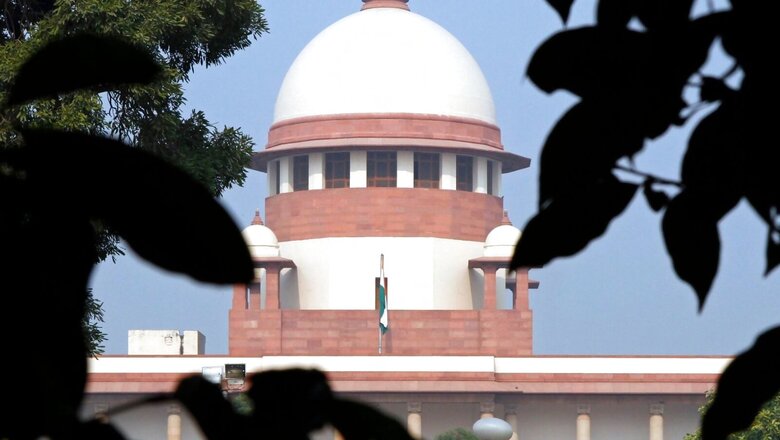
views
The Supreme Court on Tuesday held that the court should not convict an accused only on the basis of the “last seen” circumstance, where the time lag between the time the deceased was seen last with the accused and the time of murder is narrow, emphasising that the doctrine has limited application.
The SC further noted that a basic principle of criminal jurisprudence is that in circumstantial evidence cases, the prosecution is obliged to prove each circumstance, beyond reasonable doubt, as well as the links between all circumstances. Such circumstances, taken cumulatively, should form a chain so complete that there is no escape from the conclusion that within all human probability, the crime was committed by the accused and none else. Further, the facts so proved should unerringly point towards the guilt of the accused.
With this view, the Supreme Court set aside the conviction of the accused before it, under Sections 302 of the Indian Penal Code, 1860 and under Section 364, IPC.
The accused were convicted for kidnapping and murdering a 7-year-old boy. The boy’s father had approached the Magistrate to register a first information report (FIR) six weeks after the death of the boy.
The SC noted that even if the delay in recording the FIR (which was 42 days) was ignored, the salient fact which stared at one’s face was that the conviction was solely based on the testimonies of two sets of witnesses.
The Court further said that the time gap between when the deceased was seen in the company of the accused and the probable time of his death — based on the post-mortem report, which was conducted two days later, but was silent about the probable time of death, although stating that death occurred approximately two days before the post-mortem — was not narrow.
“Given this fact, and the serious inconsistencies in the depositions of the witnesses, as well as the fact that the FIR was lodged almost 6 weeks after the incident, the sole reliance on the “last seen” circumstance (even if it were to be assumed to have been proved) to convict the accused-appellants is not justified,” the bench held while setting aside the conviction and sentence of the accused and ordering their release forthwith.
Read all the Latest India News here




















Comments
0 comment